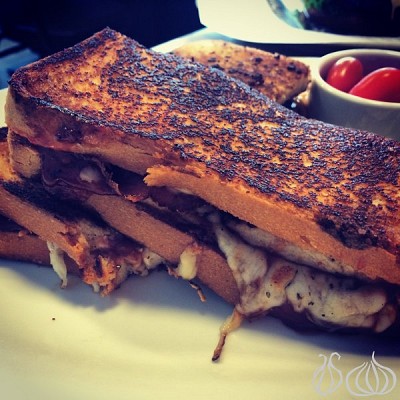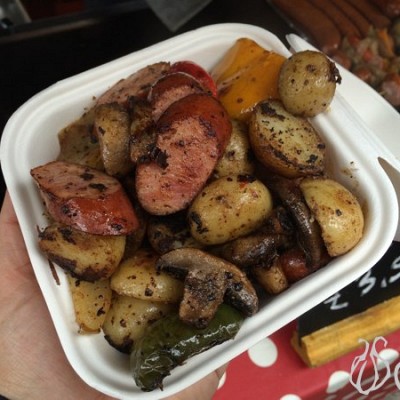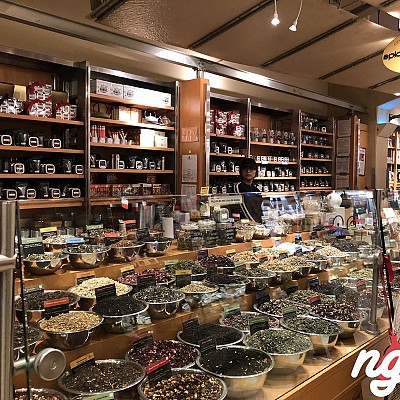The food truck industry is booming. It’s expected to continue to grow by about 6.4% by 2030. So, as a chef, if there was ever a time to try something new and exciting to grow your business, it’s now.
Food trucks aren’t just good for business, they’re good for your personal brand. They allow you to be creative, connect with customers, and might even end up inspiring you if you’ve been feeling burnt out by the restaurant industry.
Of course, starting your own food truck business isn’t necessarily as easy as finding a truck and turning the key. There are a few things to keep in mind if you want it to be a success, especially in a market that is quickly becoming saturated.
Put Together a Plan
A food truck is really a small-scale restaurant on wheels. You’re starting a business from the ground up. Even if you have a recognizable name or you’re creating a food truck as an extra branch of an existing business, putting together a business plan is essential. Your basic business plan should include:
- An executive summary;
- A company description;
- Market analysis;
- Internal organization and management;
- Service or product line;
- Marketing and sales;
- Funding;
Before you get started, consider all of these factors so you can be thorough with your needs and wants. Your executive summary, for example, should be a detailed introduction to your business. What type of food will you serve? Where will you sell it? Why did you make this choice, and what are you going to do to stand out from the crowd? If you’re looking for investors, being able to answer those questions upfront will make you seem confident, and will provide the people who want to be on board with you with a clear vision of where you’re going.
Keep in mind that different food trucks require different concepts. If you’re going to sell gourmet hot dogs, you’re going to need a different setup than someone who wants to sell sushi. Once you have a plan in place, you can start to look for the right vehicle and consider the extra equipment you’ll need.
Cruising Past Your Competition
Even if you’re the best chef in the world, you need to find interesting and effective ways to stand out from your competitors. As you gain a following, your food will speak for itself. Until then, use a combination of marketing and unique offerings to get a step ahead. First, make sure you find a good location and put together a pre-decided route. Of course, you’ll need to check with regulations and legal restrictions first, but the right route will get you the maximum number of customers possible each day. Some of the best locations to consider include:
- Construction/work sites;
- Shopping malls;
- Venues;
- Street corners.
Utilize social media to promote not only your menu but where you are every day so people can follow you and connect with you. Food trucks and social media go hand-in-hand. You’re connecting with people face-to-face every day, and they’ll be happy to share their experiences online with friends and family.
Speaking of your menu, consider what you can offer that will drive interest. Some of the latest food truck trend predictions suggest that things like mindful options for kids, unique sauces and toppings, and locally sourced items will be popular in the near future.
Depending on the vibe you’re going for and the target audience you’re trying to reach, you also might want to consider offering alcohol. It’s a fantastic way to stand out and allows your truck to be open longer, since most people are probably going to opt for a drink after dark. Not only will alcohol sales make your food truck more competitive, but you can use your mobile bar to build a national name for yourself, and potentially turn your truck into a franchise operation. Follow your state’s alcohol serving laws, obtain the correct liquor licenses, and get liquor liability insurance. Once you have your safety nets in place, you can get creative with your cocktails and draw in a crowd.
Keep Yourself and Your Business Safe
If there’s one potential downside to operating a food truck business, it’s the potential safety risks. For starters, you’ll want to have a secure location where your truck can be parked when it’s not in use. Unfortunately, it’s easier to break into a truck than a building. The last thing you want is for any of your profits or equipment to get stolen or damaged. Having a garage or building where your truck can be stored is imperative.
While you’re working, you’re going to have limited space to prep and cook everything. If you have a small crew on the truck with you, make sure everyone is well-versed in kitchen safety efforts, as well as making sure nothing gets cross-contaminated in such a small space.
Finally, consider the driving aspect of owning a food truck. You’ll have to travel from point A to point B all around your city, in a variety of weather conditions. In the winter, that means knowing how to safely travel in snow and ice. Adjust your plan and schedule slightly during inclement weather, so you can drive slowly, brake gently, and keep yourself and your team safe. Leave your starting location earlier than you normally would so you don’t put pressure on yourself or other drivers.
If you have a passion for food and you think you can bring your culinary skills to the world of food trucks, give it a try! The industry is in a season of growth, and you can capitalize on that with great food, great marketing, and a few tips and tricks.






































